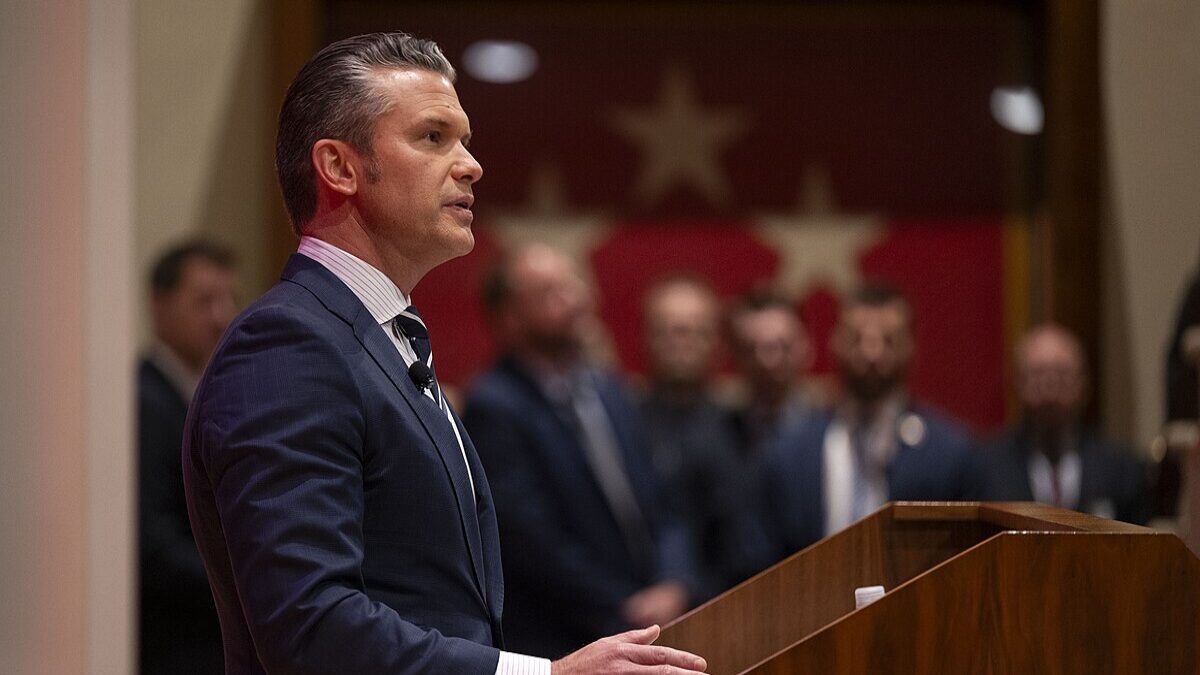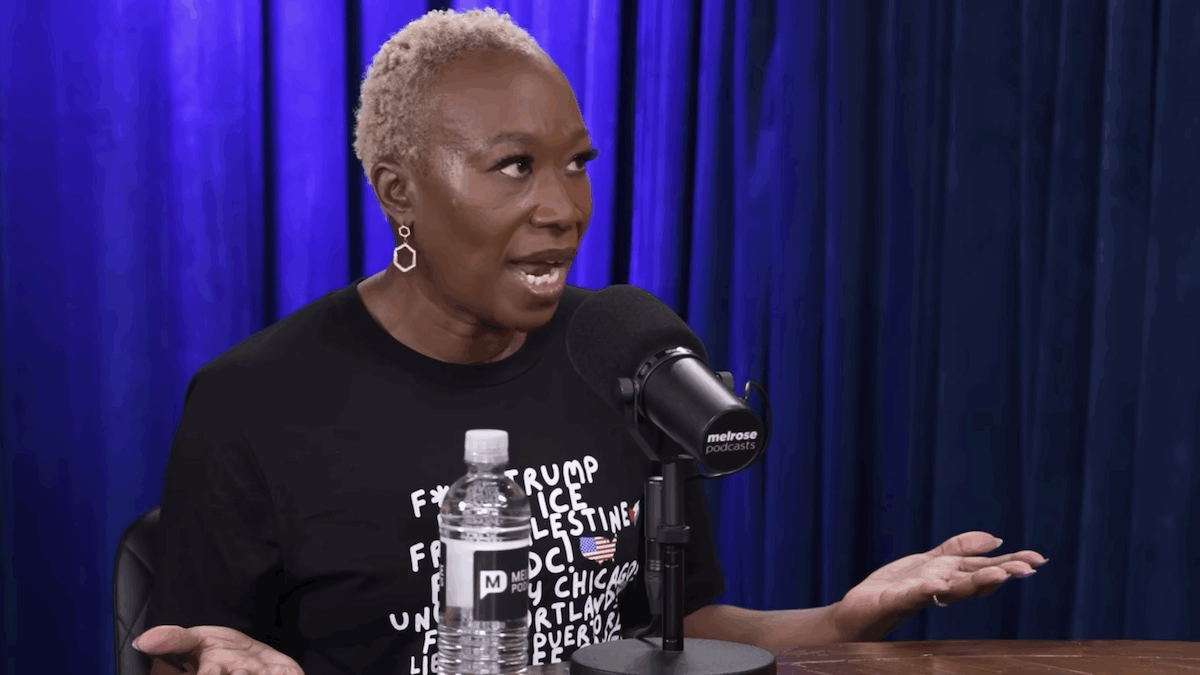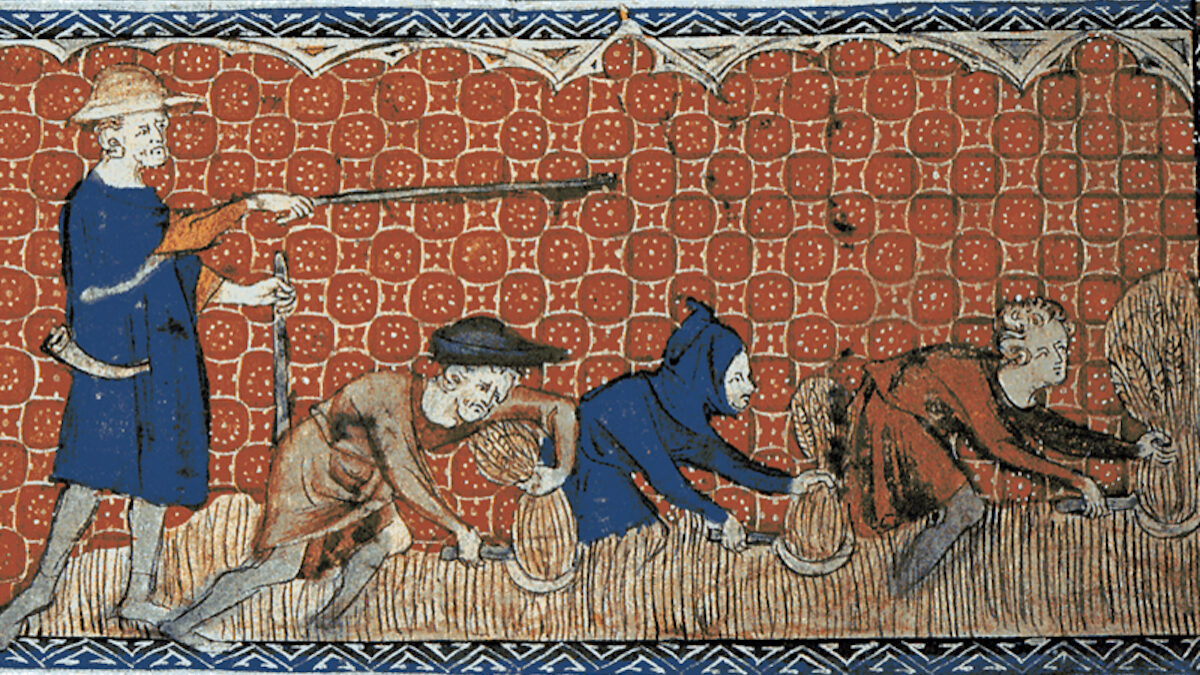
“Stop denying science!! … There is a special place in hell for you folks!! If any of your ilk get COVID-19 I hope you stick to your ‘non-science’ beliefs and let someone else have a ventilator.” “This is on you, dumb [%@&]!”
These are examples of messages the Cornwall Alliance for the Stewardship of Creation received recently. What could stir up such anger?
These and similar messages were prompted by Katherine Stewart’s March 27 article “The Religious Right’s Hostility to Science Is Crippling Our Coronavirus Response” in The New York Times, in which she targeted the Cornwall Alliance, the organization I founded.
Stewart begins, “Donald Trump rose to power with the determined assistance of a movement that denies science, bashes government and prioritized loyalty over professional expertise. In the current [Coronavirus] crisis, we are all reaping what that movement has sown.” She later describes the Trump administration’s response to the pandemic as incompetent and “in the hands of people who appear to be incapable of running it well.” Tell that to Drs. Anthony Fauci and Deborah Birx.
But first she identifies the problem as “religious nationalism,” or “Christian nationalism,” which, she says, drives “the hard core of climate deniers” among “religiously conservative Republicans.” “This denial of science and critical thinking among religious ultraconservatives now haunts the American response to the coronavirus crisis,” she insists.
Stewart Paints Religious Leaders with a Broad Brush
Stewart’s hit piece uses all the standard tools of yellow journalism: caricature, guilt by association, hasty generalization, cherry-picking evidence, ignoring contrary evidence, and more. For instance, she quotes three pastors as examples of “many of [Trump’s] evangelical allies.” One, on March 15, “urged his congregants to show up for worship in person.”
She fails to mention he later changed his mind, arranged for services to be live-streamed, and referred to the Centers for Disease Control and Prevention’s website for preventative measures. Another said he would stop in-person worship services only when “the rapture is taking place.” The third said he would pass out “anointed handkerchiefs” to protect his followers.
What Stewart doesn’t tell her readers is that all three are on the extreme fringe of American religion. They represent the “name-it-and-claim-it,” “positive-confession,” “health-and-wealth-gospel” movement condemned as heresy by orthodox Christianity. At least one is even anti-Trinitarian, putting him outside the bounds of historic Christianity — Eastern Orthodox, Roman Catholic, and Protestant — defined by the ecumenical creeds of the fourth and fifth centuries.
As Jerry Newcombe of D. James Kennedy Ministries points out in a response to Stewart:
It does not help that there are reports of a few mega-churches in the country that are defying the orders to not meet together in large groups lest we infect one another. But those irresponsible ministers are the exception, not the rule. Shame on those pastors who are disobeying the government’s commonsense orders during the pandemic. They are putting other people’s lives at risk. But the vast majority of churches in the country are using the tools available to us to ‘meet’ and ‘hold service’ in virtual ways, through the internet.
Stewart also ignored conservative evangelicals who said very different things. Dr. Frank Wright, president of D. James Kennedy Ministries and former president of National Religious Broadcasters, said love of neighbor requires us to “give our best effort in stopping the spread” of the virus by “avoiding large gatherings.”
Joshua Arnold, media coordinator for the Family Research Council, wrote in The Christian Post of the need for strong measures and urged churches to follow government instructions to suspend in-person worship services. Jay Sekulow of the American Center for Law and Justice, an outspoken Trump supporter, on March 24 urged people to “follow the shelter-in-place protocols for everyone’s protection.”
National Institutes of Health Director Francis Collins, one of the world’s top medical scientists, appeared on Focus on the Family’s flagship program on March 19 to warn of the danger and explain the need for widespread quarantines and shelter-in-place orders. Southern Baptist Theological Seminary President Dr. Albert Mohler discussed the disease and its dangers on eight episodes of his daily podcast “The Briefing” March 13-24, while strongly objecting on March 23 to arguments that the near-shutdown of the economy was necessary to curtail the virus.
Stewart reserves special contempt for people who hold to biblical creationism. But Ken Ham, president of Answers in Genesis, announced March 16 — before most shelter-in-place or avoid-large-gathering orders went out from government officials — that his ministry was closing its Creation Museum and Ark Encounter and canceling conferences to aid in curbing COVID-19’s spread.
Stewart Slanders the Cornwall Alliance
Stewart also misrepresents the Cornwall Alliance. In a March 2 article in The New Republic, she claims we “produced a declaration asserting, as a matter of theology, that ‘there is no convincing scientific evidence that human contribution to greenhouse gases is causing dangerous global warming.’” But that declaration didn’t offer that judgment “as a matter of theology.”
Instead, we said we believed our 76-page “Renewed Call to Truth, Prudence, and Protection of the Poor: An Evangelical Examination of the Theology, Science, and Economics of Global Warming” justified that sentence. Its chapter on the science of climate change was written by NASA award-winning climatologist Dr. Roy W. Spencer, a principal research scientist in climatology at the University of Alabama, Huntsville, and author of many peer-reviewed scientific papers on climate change, and with the aid of nine other scientists.
Stewart misrepresents us in her New York Times article, too, saying we “denounced environmental science as a ‘Cult of the Green Dragon’” and “cast environmentalism as an alternative — and false — theology.” First, it’s not environmental science we criticize, although in the tradition of all good science, we reserve the right to point out errors in scientific studies. We criticize radical environmentalism masquerading as objective science to serve unscientific agendas.
Second, over and over in public documents, we distinguish radical environmentalism from environmentalism per se. We explain “the difference between environmentalism and radical environmentalism … showing that radical environmentalism is a false religion” that, “in contrast to Christianity … degrades man, deifies nature, and disregards the poor” and “is the face of the anti-human, pro-death agenda … a philosophy that considers humans as the evil cancer of the earth.”
Prudence Was the Goal
What have we at the Cornwall Alliance said about the novel coronavirus? In “What Is ‘Prudent Prudence’ in Response to the Coronavirus?” on March 18, I wrote to “encourage simultaneously both prudent care and fearless confidence,” avoiding the extremes of exaggerating while understating the pandemic’s danger. There I praised the government’s common-sense coronavirus responses, such as urging people to do the following:
- “[P]ractice heightened personal hygiene, especially frequent and thorough handwashing with soap, and avoid touching our faces,
- cover our mouths and noses with tissue when we cough or sneeze and dispose of the tissue in a covered wastebasket,
- minimize personal contact beyond our own families — and even within them if we know a family member has been infected,
- avoid large-group gatherings but practice ‘social distancing’ if we attend them (keeping at least 5 or 6 feet apart, not shaking hands or hugging),
- stay home when sick so we don’t spread disease to others and overburden a health care system already stretched near its limits,
- be especially careful to avoid situations in which we could pass on any infectious disease — Coronavirus or other — to especially vulnerable people, like the elderly and those with medical conditions like heart or respiratory diseases, diabetes, or immune deficiencies.”
“Such actions,” I said, “can reduce the total spread of the virus [and] the speed at which it spreads … reducing total cases … and making it less likely that we’ll run short of hospital beds, respirators, and other resources necessary to treat those infected.”
While I raised the concern, shared by others, that extreme measures causing enormous economic losses could unintentionally result in even higher death tolls than the virus, I tentatively questioned the need for canceling all large gatherings, including religious services. I did recommend that those who continued such services should adopt careful measures to reduce virus transmission, linking to an article in Christianity Today by Dr. Daniel Chin, a physician trained in pulmonary and critical care medicine and epidemiology with 25 years of global public health experience who in 2003 led much of the World Health Organization’s support to China to contain the SARS epidemic. Chin advised different levels of action depending on local circumstances.
But Stewart wrote to support a predetermined conclusion. She couldn’t be bothered to find out, as a good journalist would, what we or plenty of other conservative, evangelical Christians think about the coronavirus — or anything else, for that matter.
Who Is Katherine Stewart?
What qualifies Stewart to conclude that those who disagree with her on climate change or the COVID-19 pandemic are science deniers?
The “Note on the Author” in “The Power Worshippers” identifies her as “one of the leading authorities on the political aspects of the religious right” and “author of ‘The Good News Club: The Religious Right’s Stealth Attack on America’s Children’” who “contributes to the New York Times, American Prospect, the Washington Post, the Nation, the Guardian, the Advocate, and the Atlantic” — all left-leaning publications.
In 2014, she “was named Person of the Year by … Americans United for the Separation of Church and State.” Her Wikipedia entry identifies her as a journalist, and its section on “Early life and education” lists no education. Ditto the “About” page of the website for her book “The Good News Club.”
In short, Stewart appears to be a hard-left, anti-religious, and especially anti-Christian campaigner writing in ignorance about both science and religion and bent on excluding religious voices from the public square.









